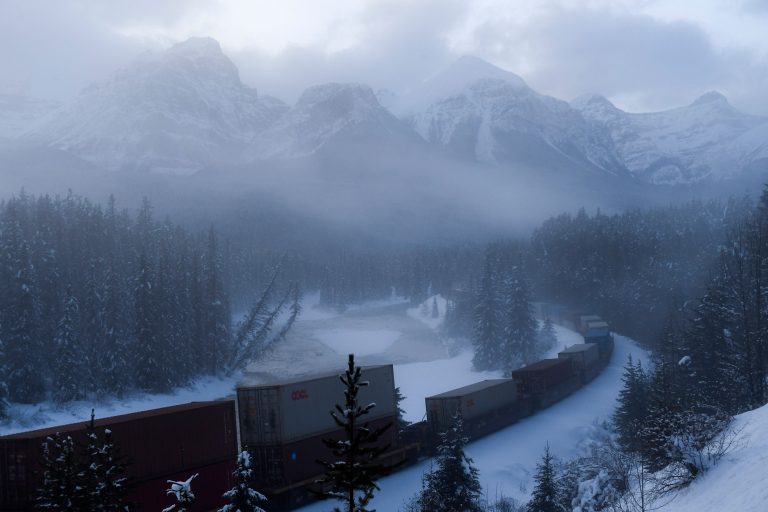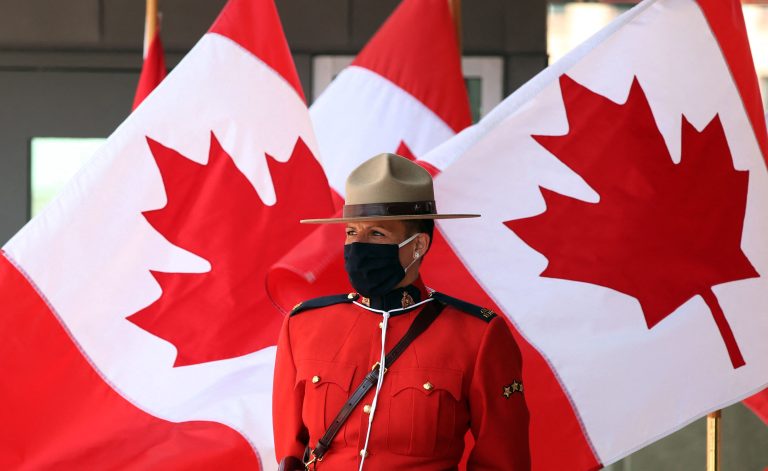Conductors, engineers and yard workers for Canadian Pacific Railway Ltd. (CP) have stopped work and are now on picket lines after the union representing the workers, Teamsters Canada Rail Conference (TCRC), failed to agree on a contract with the company.
CP says it is at an “impasse with union negotiators in a labor dispute that has shut down the second-largest rail network in Canada, threatening the supply of fertilizers to farmers ahead of the spring planting season,” the Financial Post reported.
Teamsters Canada, which represents more than 3,000 CP Rail conductors, engineers, train and yard workers went off the job after a midnight deadline, set by CP, passed and the two failed to agree on a contract, with no deal in sight.
In a statement, the union said that CP Rail had locked out the workers, however later issued another statement claiming that the workers were also on strike.
The two sides are reportedly at odds over pensions, wages and rules around work schedules and have been reportedly negotiating a new contract since September.
Success
You are now signed up for our newsletter
Success
Check your email to complete sign up
CP Rail says that it pays TCRC engineers an average annual salary of $135,442 and that the average pay of its conductors, yard workers and train workers is $107,872. CP’s net income in 2021 was $2.9 billion, up from $2.4 billion in 2020, according to the company’s most recent earnings update. Annual revenues for the company grew by four percent to $8 billion in 2021.
In a statement the TCRC blasted CP Rail writing, “As Canadians grapple with a never-ending pandemic, exploding commodity prices and the war in Ukraine, the rail carrier is adding an unnecessary layer of insecurity, especially for those who depend on the rail network.″
CP President Keith Creel fired back in a news release stating the union “failed to respond” to a new offer that had been tabled and that the union pulled employees off the job.
Creel wrote, “The TCRC opted to withdraw their services before the deadline for a strike or lockout could legally take place. The TRCR is well aware of the damage this reckless action will cause to the Canadian supply chain,” ABC News reported.
So far, the Canadian federal government has done little to resolve the conflict, and have resisted pressure to step in and use back-to-work legislation to end the standoff.
Canadian Labour Minister Seamus O’Regan’s office said in an email to the Financial Post on Monday morning that “CP and Teamsters Rail remain at the table. We have faith in their ability to reach an agreement. Canadians expect them to do this ASAP.”
Senators in the U.S. from North Dakota, Montana and Indiana are urging Prime Minister Justin Trudeau to step in and avert further disruption on CP lines. Four Republican senators, led by Kevin Cramer of North Dakota, said a rail shutdown would create a “freight capacity crisis that will have a profound impact” on both the U.S. agriculture and energy sectors long after the dispute is settled.
Dispute threatens Canadian farm output
Canadian farmers are saying that the work stoppage has come at the worst possible time since many depend on CP rail lines across the Prairies for their supply of fertilizer and they are just about to enter their spring planting season.
Without enough fertilizer, Canadian farmers risk missing a crucial window to boost crop yields this season.
Compounding the problem is the Russian invasion of Ukraine that has destabilized grain production in Ukraine, home to some of the most fertile grain growing regions on the planet; a region that much of the Middle East and other countries relies on for grain imports.
Some are hoping for a bumper crop in the Canadian Prairies this year to help stave off a global food crisis, according to Nutrien Ltd., a global fertilizer manufacturer based in Saskatoon.
Dalhousie University professor of food distribution and policy Sylvain Charlebois told CTV News, “The entire planet cannot afford a lengthy labor dispute at CP Rail.”
As for the potential impact on food prices due to the work stoppage, Charlebois said that will depend on how long the dispute lasts.
Should the dispute last weeks, Charlebois expects the livestock industry to adjust their inventories which could lead to higher prices at the grocery store, particularly for meat products.
“We often talk about our farmers and our ag economy here in Canada, but we have to think about the global picture because of what’s going on in Ukraine,” Charlebois told CTV News.
“The Ukrainian conflict is really impacting the entire agri-food economy around the world. So we need more fertilizers, more grains and everyone is looking at North America to produce more,” he said.













